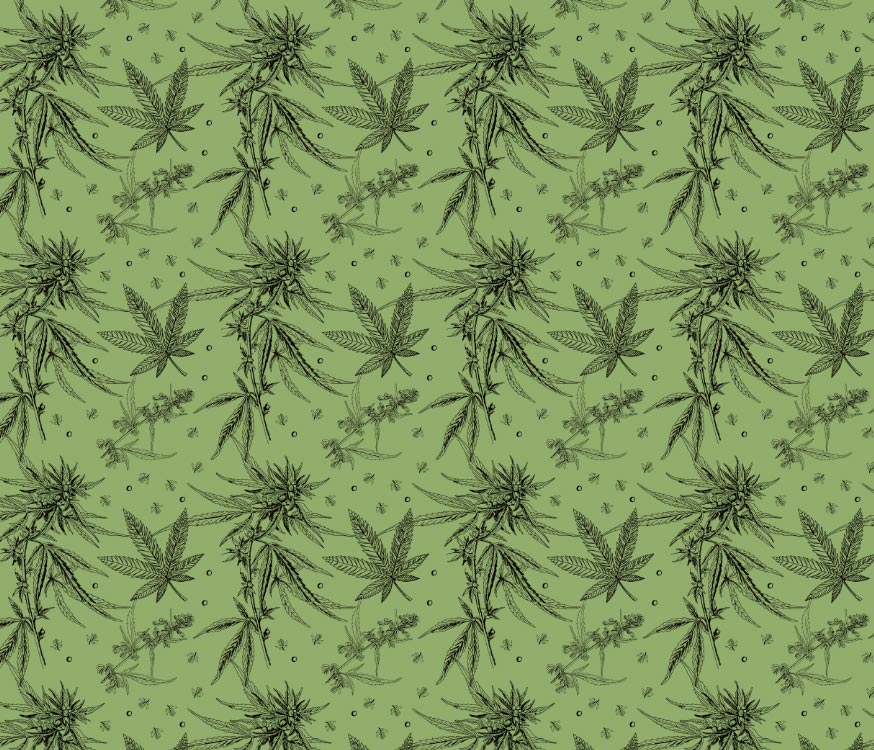Cannabis: Is it Medicine Yet?
By Sven Hosford / Contributor
In August, after a full summer of speculation, the U.S. Drug Enforcement Agency (DEA) announced that cannabis will remain a Schedule 1 Drug, the designation under the Controlled Substances Act for “drugs with no currently accepted medical use and a high potential for abuse.” The announcement included this stinging rebuke, “...the scientific evidence is not widely available.” Setting aside the mind-numbing government logic that there is so little research precisely because of the Schedule 1 designation, the belief that scientific evidence is not widely available is pure nonsense. Other than the Reefer Madness of the 1930s, which led to Nixon’s War on Drugs in the 1970s, cannabis has been considered medicine throughout the entire history of humanity by healers on every continent, with no known overdose deaths.
In short, this is purely a political and not a scientific decision. The DEA is enduring a storm of social media mockery as people post pictures of their hand with “6630507” written on the palm. That is the number of the U.S. Patent filed by the Department of Health and Human Services in 2001, which states, “Cannabinoids have been found to have antioxidant properties … useful in the treatment and prophylaxis of a wide variety of oxidation associated diseases ... [and] found to have particular application as neuroprotectants.” So while the DEA denies it, the U.S. Government owns the first patent for cannabis as medicine.
Happily, Pennsylvania will likely be the keystone state that finally settles the matter. The years-long struggle for legal medical cannabis ended in an extremely rare and raucous bipartisan celebration under the capitol dome. Seventy-five percent of both chambers were moved by the suffering of children and veterans for whom cannabis is a much safer option, and for some, the only medicine that provides relief. Sen. Mike Folmer (R) saw that suffering first-hand and joined forces with Sen. Daylin Leach (D), often described as the “designated hippie” of the Senate, to co-sponsor Senate Bill 3. Governor Wolf signed that bill on April 17, making PA the 24th state to designate cannabis as medicine.
Veteran lobbyist Tom Santanna, who was closely involved in the struggle for passage, is continuing to follow the issue as the Department of Health (DoH) writes the regulations that will create an entirely new industry from scratch. According to Santanna, “The PA Department of Health has been rolling out various temporary regulations to help implement the program and has been providing regular updates to the public on the progress of the program, which is great for transparency and demonstrates forward progress.”
Santanna has extensive experience with the regulatory process in state agencies, and as president of Tom Santanna Strategic Consulting, he represents the Pennsylvania Medical Cannabis Society, an industry organization. “It’s been very helpful that in the commonwealth we have a governor who has been for this issue and a Department of Health that wants to get this program right the first time.”
One of the DoH’s first acts was to convene a physicians working group. “The DoH is actively seeking the support of the medical industry, which may have been overlooked in other states,” says Santanna. “Participation by doctors is essential. The role of the physician’s working group is absolutely key to not only providing a roadmap of policies and best practices, but in securing the support of the major medical systems in the state. The hope is that doctors will become more comfortable recommending cannabis when they better understand the science of how cannabis works in the human body.”
To support more research, the new law, now called Act 16, will establish eight “vertical” licenses to be awarded to groups working with research universities, which permit growing, processing, and dispensing, and requires follow up with patients. All other licenses will be for either growing/processing or dispensing.
The law quickly established Safe Harbor provisions, which now protect minors and their caregivers who acquire medical cannabis in another state. It requires a doctor’s signature and approval by the DoH. In the first months, over 50 children received this protection, although thousands are eligible. The law allows doctors to recommend cannabis for 17 conditions, among the highest number by any state.
Naturally, Pittsburgh will play a key role in teaching doctors. The new law stipulates that physicians who wish to recommend (not prescribe) cannabis according to Act 16 must take a four-hour course, which only some states require. Compassionate Certification Centers and the AnswerPage (which provides the mandated educational requirements for states such as Florida, New York, and hopefully Pennsylvania) will be sponsoring a similar hybrid-CME event for clinical providers, which will take place at the Medical Marijuana World Congress & Convention, set for April 21-22, 2017, at the David L. Lawrence Convention Center.
“This is one of the first times in the history of the U.S. that a medical marijuana convention is offering a 12 CME credit course for physicians to get education, whether they are for or against marijuana,” says Melonie Kotchey, Chief Operating Officer and co-founder of Compassionate Certification Centers, which is hosting the event. “Our business helps to connect physicians and patients who are interested in medical marijuana, and provides the support and educational services required on both ends. Our goal is to help providers maintain a smooth transition into implementing medical marijuana into their practice, and to help patients connect with appropriate and skilled providers in their geographic region.”
“Pennsylvania is poised to educate more doctors about Cannabis than all other states combined.” — Melonie Kotchey, COO and co-founder of Compassionate Certification Centers
The Congress will feature former NFL players Ricky Williams and Marvin Washington, along with leading medical cannabis educators like Dr. Stephen B. Corn and Dr. David Tonkin. “We are donating a portion of the funding from this event into medical marijuana research, as we feel this is incredibly important,” says Kotchey. “We want to bring a medical side to these conferences that no one has ever seen before. At the end of the day, we’re all in this for the patient.”
If the majority of physicians in the state agree, Pennsylvania, with its patient-friendly bill and pro-cannabis DoH, is poised to become one of the largest and most efficacious medical cannabis industries in the nation — an industry that will employ thousands, treat hundreds of thousands, and put millions into the state coffers. Not bad for a plant with “no medical use.”
About Sven Hosford: Currently the Editorial Director for the Pennsylvania Medical Cannabis Society, Sven Hosford has decades of experience reporting on integrated, natural, and holistic medicine.
For more information on the Pennsylvania Medical Cannabis, visit pamcs.org. To apply for a Safe Harbor letter, visit health.pa.gov. For tickets to the World Congress & Convention, visit compassionatecertificationcenters.com.





